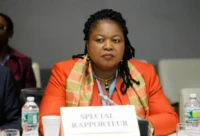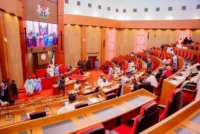One year after the anti-immigration riots that swept across England, communities continue to grapple with the aftermath of the violence and division that erupted in 2024. The riots, ignited by false online rumors following a tragic incident in Southport, led to over 1,800 arrests and targeted hotels housing asylum seekers. Despite government efforts, including the closure of contentious asylum hotels and the formation of a commission on community cohesion, local authorities, MPs, and community groups report that conditions have worsened. Rising anti-Muslim sentiment, increased online misinformation, and growing distrust in institutions have further strained community relations.
Key issues persist, such as visible illegal migration, a struggling asylum system, inadequate housing, and a perception of unfairness among economically strained communities. Charities like Belong and think-tanks such as British Future highlight deep societal rifts and emboldened racism. Criticism has also been directed at the police response to online incitement, which many view as inadequate. Protests, particularly in places like Epping, Essex, have reignited fears of further unrest, with figures from Reform UK playing a prominent role.
Despite government reassurances and some policy changes, many local leaders warn that communities remain volatile, likened to a “powder keg,” amid ongoing political and social strain.
The Blackpool Metropole Hotel, used since 2021 by the UK Home Office as temporary housing for asylum seekers, is under intense scrutiny amid mounting safety, staffing, and public health concerns. Originally intended to accommodate 364 individuals, the hotel now houses around 500, including children and pregnant women. Reports of serious issues—such as frequent sewage overflows, inadequate staffing (with just two or three workers on shift for hundreds of residents), and health risks—have prompted Blackpool Council, local MP Chris Webb, and former staff to call for its closure. Former housing manager Samantha Arden resigned in June 2025, citing unsafe conditions and poor staffing. Despite government and Serco (the Home Office contractor) denials of significant problems, local authorities report escalating risks, such as disease outbreaks, domestic violence, and service strain on the already-deprived Blackpool community. Local outrage intensified after anti-immigrant riots in 2024, with safety fears heightened by the hotel’s continued use. Despite promises by the Labour government to end the use of asylum hotels, numbers have only risen. Blackpool Council and MP Webb emphasize the hotel’s unsuitability and call for urgent relocation of residents to safer accommodations.
In response to violent protests in Epping surrounding a hotel housing asylum seekers, Essex Police Chief Constable Ben-Julian Harrington has called for greater responsibility in political commentary. This follows Nigel Farage’s public demand for Harrington’s resignation, alleging that Essex Police facilitated the attendance of left-wing protesters—an accusation Harrington denies, stating the shared video evidence does not support Farage’s claims. Harrington emphasized the real-world consequences of provocative statements, urging all public figures to consider their impact on local communities and police operations. The unrest began after the arrest of an asylum seeker on charges of sexual assault, sparking demonstrations involving both local residents and violent agitators. Harrington reported ten arrests, some involving serious charges. Amid growing national concern over immigration and public service strain, recent government actions include a migrant returns deal with France and sanctions against smugglers, alongside efforts to phase out hotel accommodations for asylum seekers. Deputy PM Angela Rayner noted that the most affected protest areas are among the UK’s most deprived, drawing a link between socioeconomic hardship and unrest. Increased police presence is planned in Epping, with hundreds of officers and support from other forces to prevent further disorder.
Tensions surrounding asylum seeker accommodation have escalated at the Britannia International Hotel in Canary Wharf, London. The hotel, currently empty, has become the center of protests following government plans to house asylum seekers there. Far-right demonstrators opposing immigration faced off with pro-migrant counter-protesters, with the latter significantly outnumbering the former. The controversy emerges amid increasing political pressure on Sir Keir Starmer’s Labour government, fueled by unverified claims and disinformation. Reform UK has amplified public distress, warning of societal collapse. Protests ignited after a reported sexual assault case in Essex, wrongly linked to migrant transfers to Canary Wharf. Despite such claims, the Home Office insists that plans for using the hotel as temporary asylum housing remain unchanged. Local councils, including Tower Hamlets and Epping Forest, are struggling with the policy and lack of consultation. The issue has exacerbated divisions within communities, especially in light of property declines and layoffs at the hotel. Advocacy groups continue to decry the inhumane conditions of asylum hotels and urge for alternative accommodations. The situation is intensifying, with further protests expected across other UK regions.
In the aftermath of the riots, anti-racism rallies have swept across the UK, with thousands gathering in cities like London, Glasgow, Belfast, and Manchester to protest the violence and express solidarity with affected communities. These demonstrations, organized by groups such as Stand Up to Racism, have aimed to counteract the far-right narratives and promote unity. However, for Black Britons, the riots have left lasting scars, reigniting fears of racial violence and discrimination. Community leaders emphasize the need for continued vigilance and solidarity to rebuild trust and cohesion in the wake of the unrest.
The riots have also prompted a broader examination of the UK’s social fabric, with discussions focusing on the role of social media in spreading misinformation and inciting violence. Critics argue that platforms have been slow to act against hate speech and far-right content, contributing to the escalation of tensions. The government faces the challenge of addressing these underlying issues while restoring order and ensuring the safety of all communities.
As the UK continues to recover from the events of 2024, the focus remains on healing divisions, addressing the root causes of unrest, and fostering a more inclusive society. Community leaders, policymakers, and citizens are called upon to work collaboratively to rebuild trust and ensure that such violence does not recur.












I cant believe the lack of progress made in addressing these issues. Its time for real change to support these communities.
Do you think stricter immigration policies could prevent future riots, or do you believe in fostering unity through diversity? Lets discuss!
I think its time we address the underlying issues causing these riots instead of just reacting to them. Lets focus on real solutions.
I cant believe people still think immigrants are the problem. Its 2022, time to wake up and stop blaming others for our issues.